Two Canada Day photos that show two very different realities in the country
Indigenous communities took to the streets to protest against 150 years of mistreatment, while celebrations also took place across the country to mark its 'birthday'
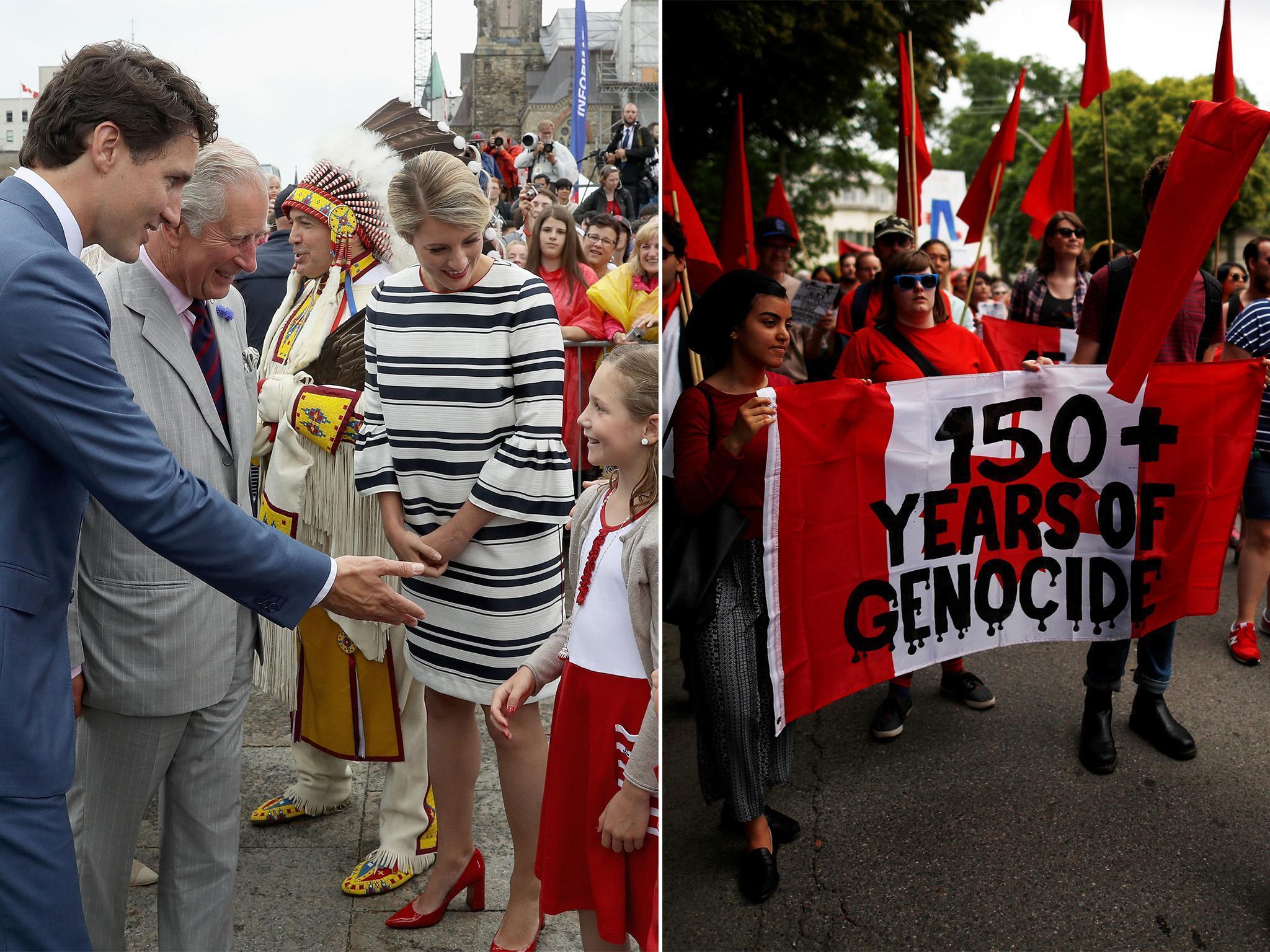
Your support helps us to tell the story
From reproductive rights to climate change to Big Tech, The Independent is on the ground when the story is developing. Whether it's investigating the financials of Elon Musk's pro-Trump PAC or producing our latest documentary, 'The A Word', which shines a light on the American women fighting for reproductive rights, we know how important it is to parse out the facts from the messaging.
At such a critical moment in US history, we need reporters on the ground. Your donation allows us to keep sending journalists to speak to both sides of the story.
The Independent is trusted by Americans across the entire political spectrum. And unlike many other quality news outlets, we choose not to lock Americans out of our reporting and analysis with paywalls. We believe quality journalism should be available to everyone, paid for by those who can afford it.
Your support makes all the difference.People across Canada came together this weekend to celebrate the country’s 150th anniversary of confederation.
Prime Minister Justin Trudeau kicked off celebrations outside the country’s parliament in Ottawa, joined by as many as 25,000 revellers.
However, the celebrations were dampened not only by rain, but also by the reminder that for Canada’s Indigenous community, the anniversary represents little more than 150 years of oppression and is considered a celebration of brutal colonisation and genocide.
Protests in the country’s major cities drew attention to the stark contrast between the idealised version of Canada that its leader strives to represent and the lived realities of Indigenous communities still suffering the consequences of a history of abuse.
Some 100 protesters marched through the streets of Toronto, holding Canada’s flag upside down – a symbol of opposition.
Activists also erected a teepee on Parliament Hill earlier in the week.
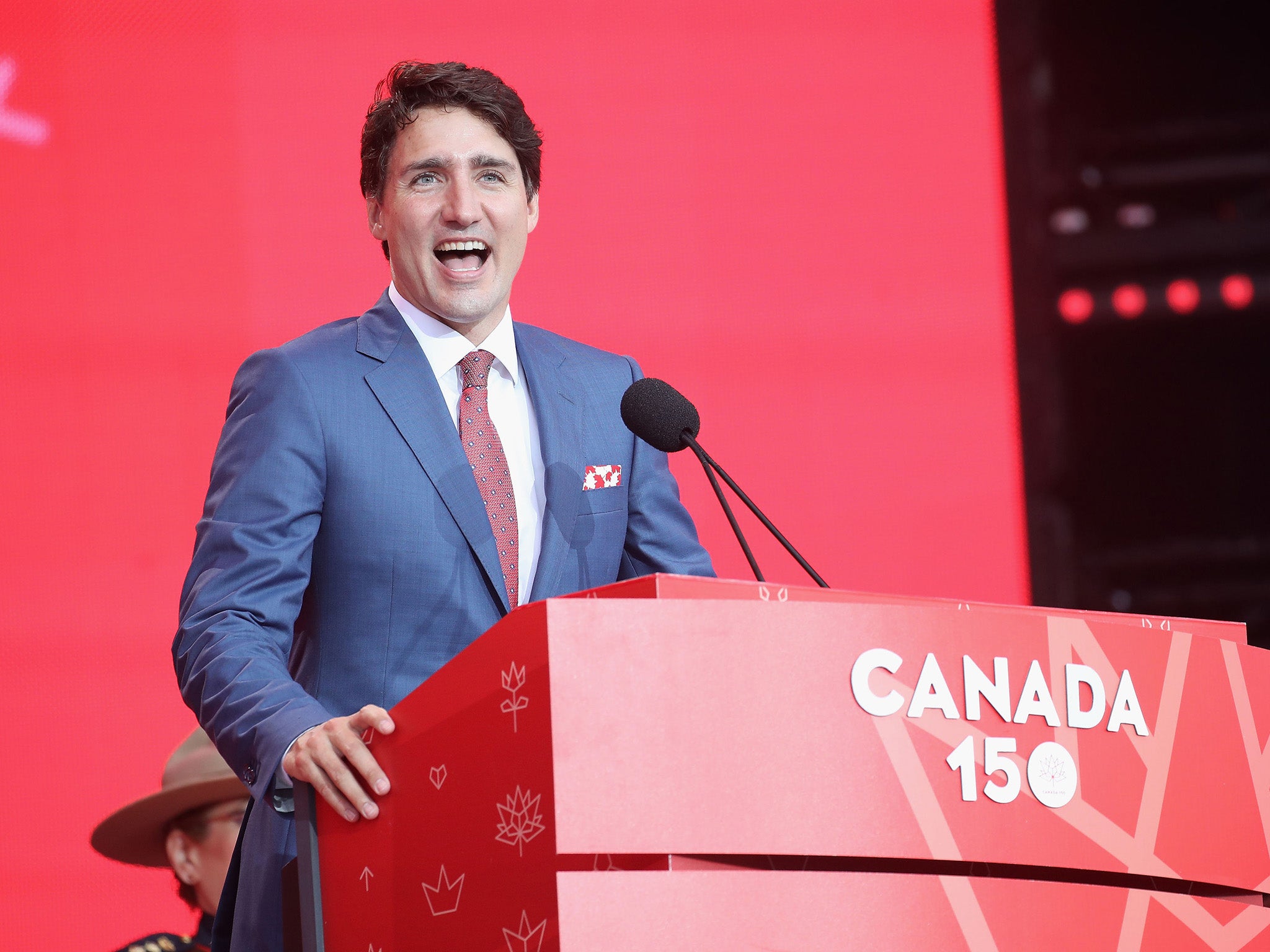
The protest group had originally clashed with police, who arrested nine people, according to CTV news. Eventually, all nine people were released however, and the structure was permitted to be set up.
Mr Trudeau visited the teepee on Friday morning, meeting with activists for roughly 45 minutes.
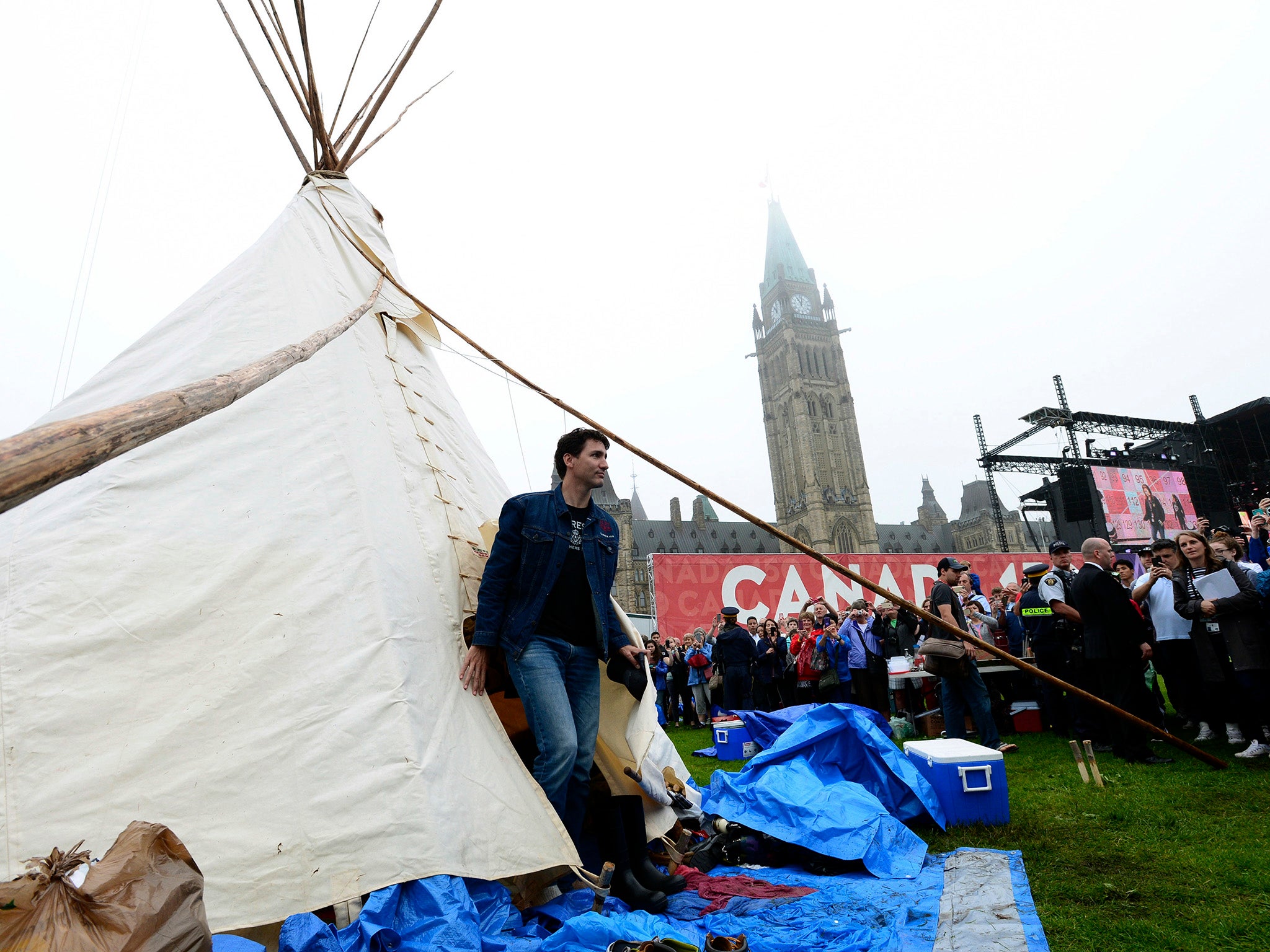
The Prime Minister admitted the Canadian government has a history of neglecting Indigenous communities and failing to strengthen its relationship with them.
“It is important that even as Canadians celebrate Canada 150 we reflect upon the experiences and the importance of folding in and hearing the stories and experiences of Indigenous Canadians,” Mr Trudeau told reporters when asked about the teepee protest.
“We recognise over the past decades, generations, indeed centuries, Canada has failed Indigenous peoples ... I can understand the impatience from many people.”
Indigenous groups have made it clear for months that they believe the 150th anniversary celebrations gloss over a history of abuse committed against members of their communities.
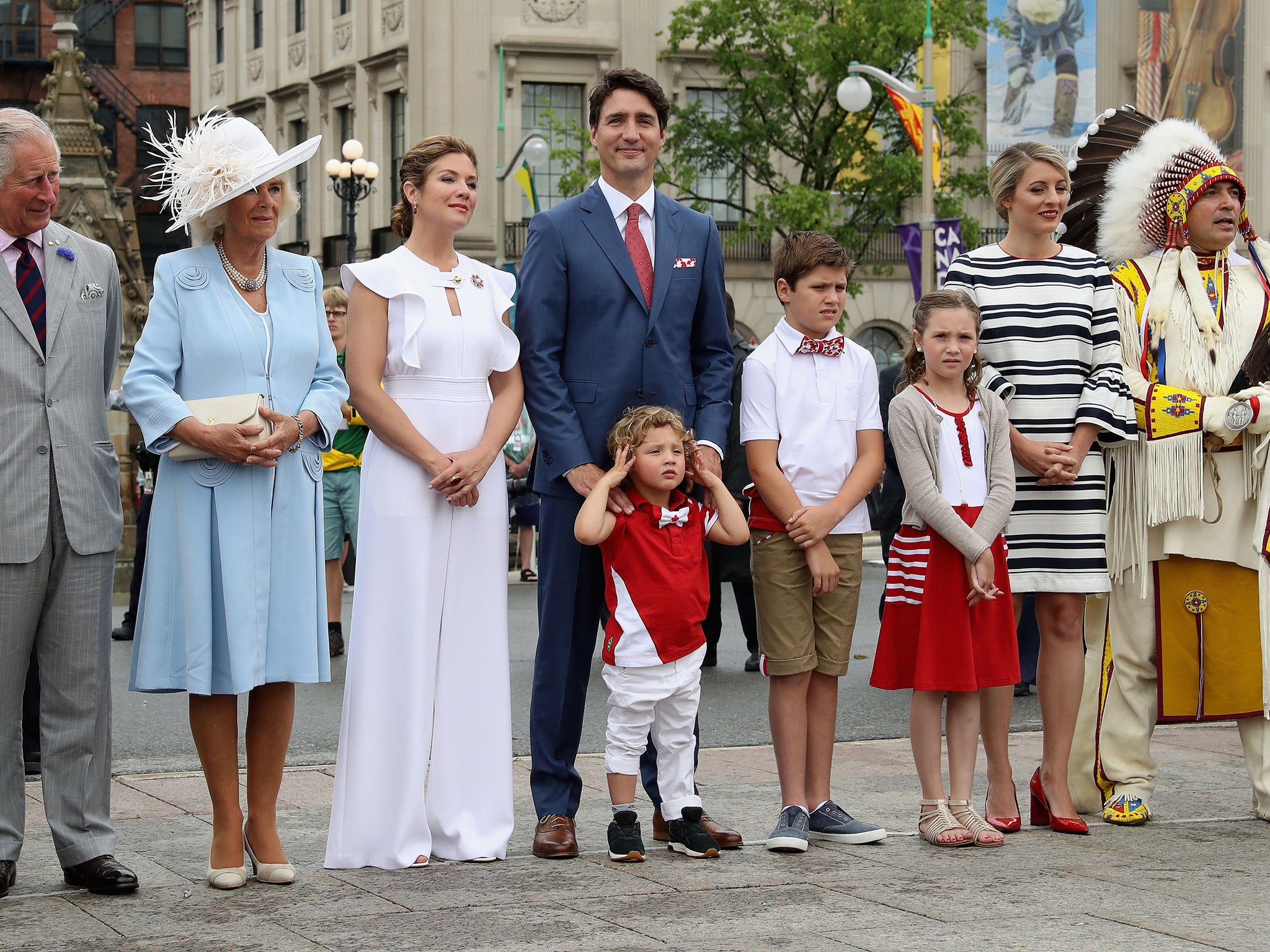
Activist group Idle No More issued a call for a “national day of action” dubbed “UNsettling Canada 150” to “celebrate our Indigenous and human rights to self-determination, our lands, territories, and resources”.
The day was also meant to “educate Canadians about how their constitutional framework, first established 150 years ago ... illegally confiscated our lands, territories, and resources, spawned by the post-confederation Indian Act and attempted to write Indigenous jurisdiction – and Indigenous Peoples – out of existence,” the group wrote on its website.
Canada has a long history of abuse towards Indigenous communities that has had a lasting impact on the welfare of millions of people today.
Historically, the country attempted to force assimilation of Indigenous communities through repressive policies, including residential schooling. Today, Indigenous communities suffer from higher levels of poverty, as well as a shorter life expectancy than other Canadians.
Many communities also do not have access to safe drinking water and several more remote communities, such as Attawapiskat in northern Ontario, have been plagued by suicides in the past year.
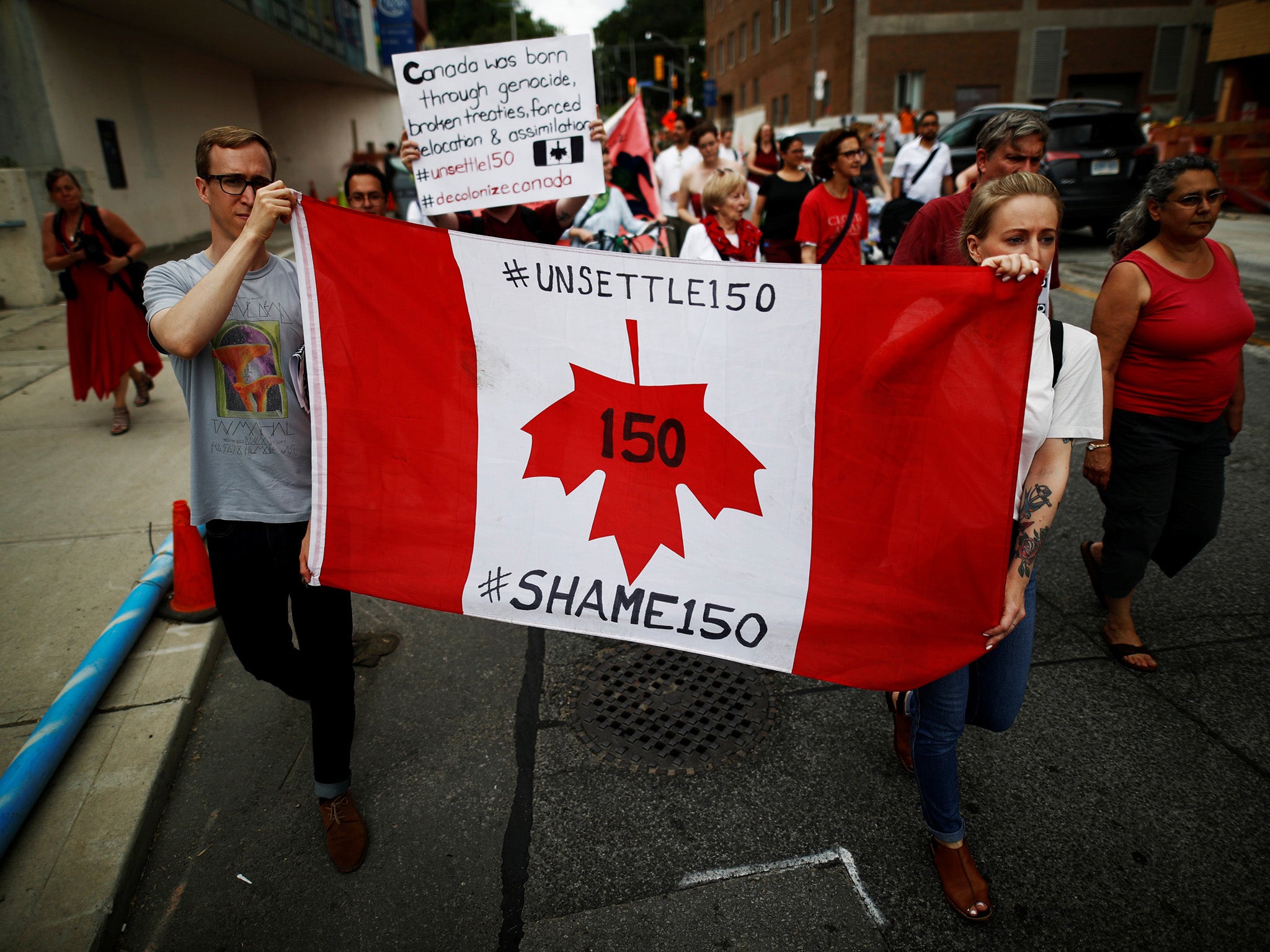
Mr Trudeau had vowed to improve the government’s relationship with Canada’s around 1.4 million Indigenous people, who make up about 4 per cent of the country’s population, when he entered office in 2015.
Two years later, however, many communities have accused the Prime Minister of failing to do enough to help communities in need.
“It’s mostly just photo ops. He’s not really doing anything with these issues at hand,” Paul Francis, 23, a member of the Mi’maq Warrior Society from Elsipogtog First Nation, who travelled from New Brunswick to join the protest in Ottawa, said.
Idle No More said “the assault has not stopped” on Canada’s Indigenous communities. “If anything, it has accelerated under the current government.
“Prime Minister Trudeau has been approving pipeline projects and continues to bank on the exploitation of our resources. He does not want to recognise Indigenous land rights.”
Mr Trudeau greenlighted two controversial oil pipelines last year – Kinder Morgan’s Trans Mountain pipeline and Enbridge’s Line 3, despite strong criticisms from environmental groups and Indigenous community leaders.
He also welcomed Donald Trump’s decision to approve the Keystone XL pipeline project in February, which the Prime Minister assured Canadians would lead to “economic growth and good jobs”, despite widespread opposition from protesters across Canada and the US.
Join our commenting forum
Join thought-provoking conversations, follow other Independent readers and see their replies
Comments